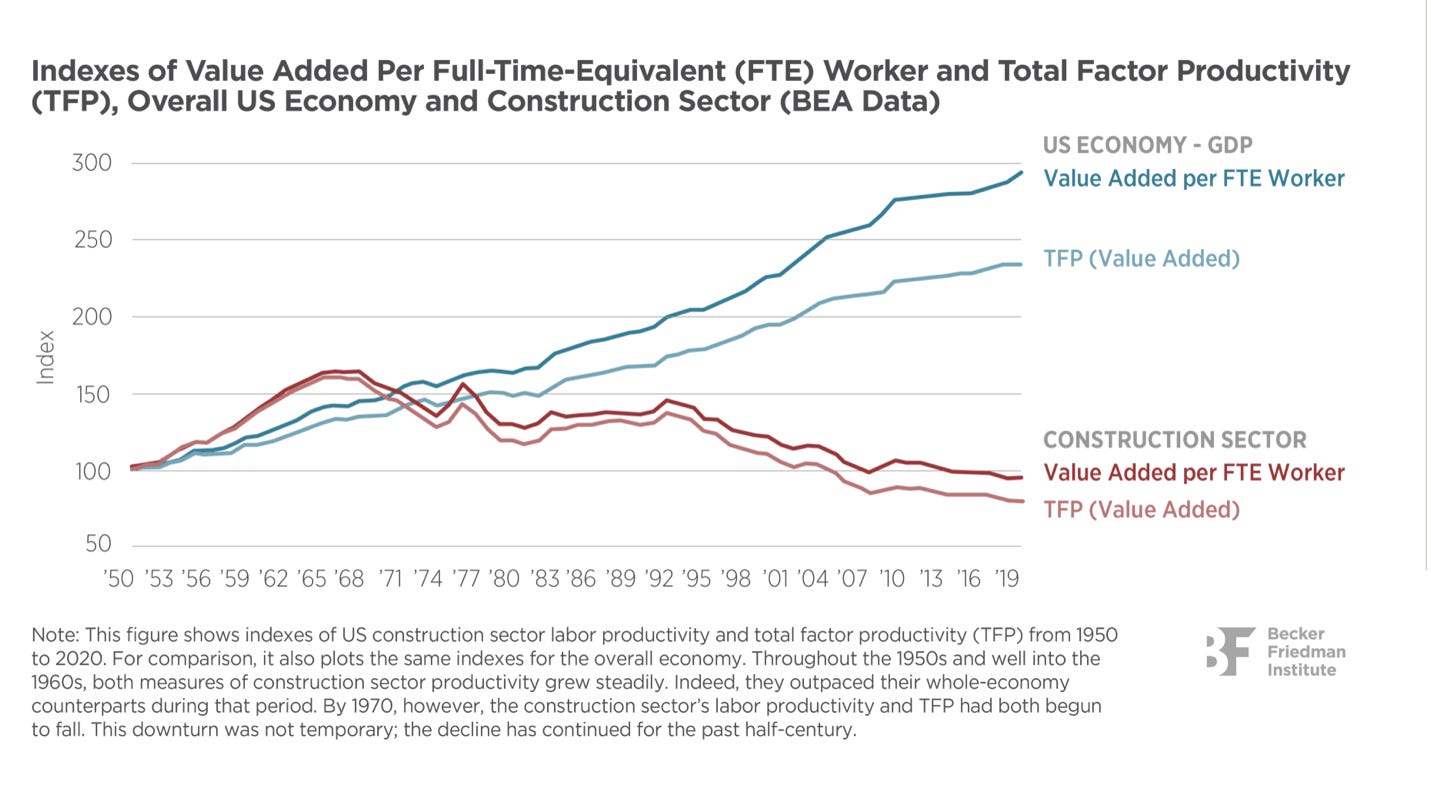I
In my last two articles on infrastructure costs, I did the proper journalistic thing, citing research and studies and all that jazz. I’ll put links to those articles at the end of this one if you’re interested. In Part Three I’d like to offer a completely unscientific set of opinions, but for which no university is going to pay me to research. If you’ve spent any time on jobsites, you know these are all true. Feel free to add your comments at the end.
No training
I learned carpentry from a guy who learned carpentry from his dad who learned carpentry in a two-year trade school program. His methods were time tested and efficient. Of course, trade schools get the short end of the funding stick when it comes to post-secondary education. And shop classes were killed in all but a few high schools because every parent thinks their little darlings are baby Einsteins. Now the industry is so desperate for workers that contractors will hire people with no training or experience at all. That’s a big drag on productivity made worse by the high dropout and turnover rate.
I lived in Germany for three years in my early 30s, and I can tell you that a waiter in Europe has more training, a better apprenticeship, better benefits, a clearer career path and a better retirement than 80 percent of the young people working in construction today.
Everybody quit smoking
Don’t get me wrong. I hate smoking. But as any old-school psychologist will tell you nicotine calms the mind, suppresses the appetite, helps you focus and seems to boost endurance. I smoked for about 10 years and the whole time I earning a living doing construction. Most everybody else did too. It definitely helped, but I don’t recommend it.
No breakfast
Growing up it was bacon eggs for breakfast five days a week thanks to my mom who knew the value of good nutrition. Nowadays I get the impression that a lot of guys hit the jobsite with no more than a gas-station burrito washed down with an energy drink. Such poor nutrition will leave you brain fogged and low on energy by 9 a.m. Breakfast cereals are no good either—toasted cardboard sprinkled with sugar. In the 40s, 50s, and 60s I suspect most blue-collar guys left the house with the same high protein breakfast I used to enjoy. That more or less went away when wives joined the workforce and divorce started breaking up families.
Tier 4 Final
The drive to reduce diesel exhaust emissions had to happen. But like so many other environmental mandates, nobody considered the cost. Engine prices doubled, an entire new maintenance protocol (diesel exhaust fluid) had to be built into the process. And how about all those perfectly serviceable older machines in California that had to be scrapped prematurely in favor of newer, cleaner ones.
There is a multiple here that ought to be factored into every regulatory decision and that number should be shared with the public before the regulation becomes law. But nobody asks the regulators to count the cost. The public dreams of green and then somehow winds up bleeding red ink.
Drugs, drugs, drugs
When marijuana was legalized on the West Coast and a handful of other states, we were told it was harmless. Now the evidence is in that it is clearly not, and that genie isn’t going back in the bottle. At its worst marijuana can induce psychosis in some young people. But it also makes some people stupid and excited at first, and then lethargic for hours as the high wears off. On a large and kinetic jobsite it can be hard to detect if a person is stoned or coming down from a pot high. So unless construction company owners are rigorous in their drug testing, it’s likely that at least a small percentage of their workers are functioning like adult-sized kindergarteners.
Cell phones and social media
Nobody objects to a construction worker taking a short video to show off a finished project. Or a contractor or tradesman using cell phone footage to educate or explain a particular solution or process they’ve discovered. But break dancing on a roof? Pranks and stunts? Those should be cause for termination with extreme prejudice.
…That’s my take on things anyway. For a more objective look at the problem, here are links to earlier articles in this series:
Part one: Researchers at New York University discover that lawyers, environmentalists and slow-moving bureaucrats are the primary cause of construction spending overruns. Everybody in construction already knows this, but now that the numbers are in, shouldn’t the government start doing something?
Part two: “Democracy,” said H.L. Mencken, “is the theory that the common people know what they want, and deserve to get it good and hard.” My two favorite cities in the US, show just what happens to the infrastructure most people want when a minority of self-righteous know-nothings take over city councils and planning commissions.



